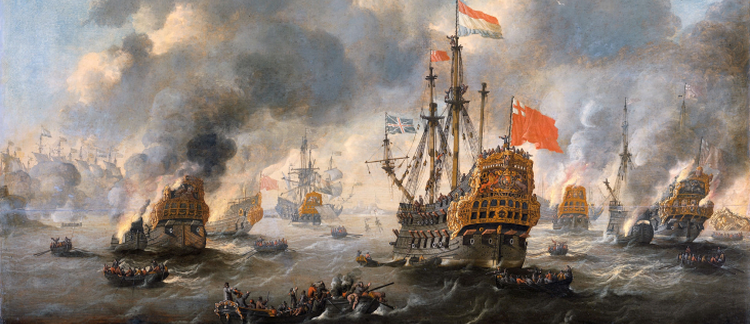No Man is an Iland, intire of itselfe; euery man is a peece of the Continent, a part of the maine; if a Clod bee washed away by the Sea, Europe is the lesse, as well as if a Promontorie were, as well as if a Mannor of thy friends, or of thine owne were.
John Donne, Devotions Vpon Emergent Occasions (London, 1624)
In 1982 Sir Alec Douglas Home, a former British Prime Minister, contributed an editorial to The Times in which he took up this extract from Donne’s seventeenth Meditation to justify what he considered was the organic link between the Falkland Islands and the UK (‘We Are All Falklanders Now’, 13 April 1982). Home willingly omitted the reference to the continent with a view to avoiding any possible connection between the Falklands and South America. By so doing, he also skipped the reference to Europe.
The Donne quote still resonates in today’s post-Brexit world. It is not absurd to posit that Britain is still a ‘piece of the [European] continent’, as it was in the seventeenth century. This double special issue of Marvell Studies, entitled Marvell and Europe, aims to explore Andrew Marvell’s political and literary interactions with Europe. The articles follow up on an international conference hosted by the Université de Strasbourg and the Université de Haute-Alsace (France) in June 2016 and sponsored by the Andrew Marvell Society. A full understanding of Andrew Marvell’s verse and prose writings requires an appreciation of their European context. Marvell himself travelled to the European Continent repeatedly: between 1642–3 and 1647 he visited Holland, France, Italy and Spain; in 1655–6 he stayed at the Protestant Academy at Saumur, France, with Oliver Cromwell’s ward, William Dutton; in 1662 to 1663 he was in Holland on state business; and between 1663 and 1665 he was part of the Earl of Carlisle’s embassy to Muscovy, Sweden, and Denmark. Contemporary events, such as the three Anglo-Dutch wars of the mid-century, afforded him ample material for his satires and prose polemics, and early-modern European literature more widely—such as the work of the libertins érudits—deeply informed his poems and prose.
The present volumes are further contributions to the transcultural field of research which early modern criticism has recently adopted and offer multiple perspectives as well as interdisciplinary approaches. The first issue ‘Marvell, Europe, and Cultural Negotiations’ looks at the way cultural transfers in Europe impacted on Marvell’s writings. The second, ‘Marvell, Europe, and Social Negotiations’, discusses Marvell’s involvement in political and social interactions on the European continent.
Nicholas von Maltzahn’s essay re-examines Marvell’s 1664 diplomatic mission to Sweden and Denmark as Secretary to the Earl of Carlisle. It is based upon the discovery of new documents in Marvell’s own hand, in English and in Latin. Although his expectations as a translator were not fully met, he benefited from this linguistic experience which was to be of use for his later literary writings.
Steven Zwicker discusses Marvell’s inconsistencies regarding Holland. Although ‘The Character of Holland’ is a satire of the Dutch, Marvell showed deep interest in Holland’s republican regime and religious toleration. Zwicker addresses this in terms of Marvell’s sense of contradictory selfhood.
Ineke Huysman’s paper also focuses on Marvell’s connections with Holland. She investigates the parallel lives of Marvell and Constantijn Huygens and wonders whether the two men actually met. One of the possible links between them was Richard Flecknoe, whose poverty Marvell satirized in ‘Flecknoe, an English Priest at Rome.’
Another of Marvell’s destinations was France and the Protestant Academy in Saumur, more specifically. He stayed there with his ward William Dutton in 1656–57. Jean-Paul Pittion offers a thorough presentation of the ways the English community interacted with the social and religious environment in Saumur. He especially highlights the close and sometimes boisterous contacts between the young English travellers and other residents.
Conceiving of metaphor as a form of literary transaction, Ryan Netzley extends this notion to commercial exchanges and explores Marvell’s poetic approach to value. The poet’s tendency to literalize metaphors seems to reveal his dissatisfaction with the expansion of market exchanges in seventeenth-century England, an unexpected attitude on the part of a member of parliament who defended trade against the excise tax.
Reading Marvell in a European context helps to form a clearer idea of how much of a source of attraction and suspicion was the European Other in England in the latter half of the seventeenth century. It also helps to have a better grasp of Marvell’s divided self and of his works.
Competing Interests
The authors have no competing interests to declare.
